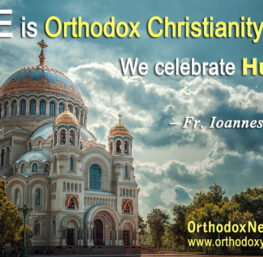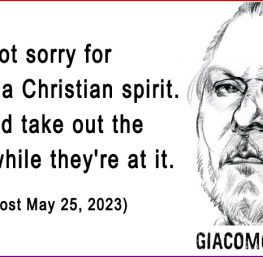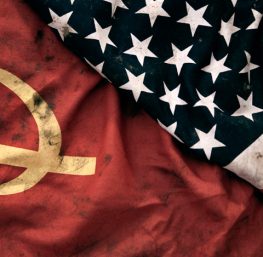Moscow News June 27, 2006
The Moscow Patriarchate believes that human rights work in Russia has been compromised by the inability to discern real cases of human rights violations and the use of human rights for political purposes, Interfax news agency reports.
“What other attitude our citizens could have in reacting to human rights advocacy if some human rights activists supported people who fought against Russia, who made profit out of their people’s work, who mocked the culture and religion of the majority, who disdained moral norms,” Metropolitan Kirill of Smolensk and Kaliningrad said in an interview to the July issue of the Thomas magazine.
“But when human rights activists begin to advocate truth outside the interests of their sponsors, mostly from abroad, and stopp identifying with those who do not love Russia, then this movement will be rehabilitated in people’s eyes,” Metropolitan stressed.
He also emphasized that what he said should not be applied to all the human rights advocates “as there are very much respected people among them.”
Earlier this month the World Russian People’s Council on the request of Russian Orthodox Church worked out a document where it expressed the Christian point of view on human rights.
Grigory Yavlinsky, leader of the Yabloko democratic party, has given a high assessment to this document and expressed praise to Orthodox Church interests in the human rights situation in Russia.
“In a situation when authoritarian tendencies are growing both in the state and society, such sentiments if manifested in the Church are very dangerous. In the final analysis they discredit Christianity. Therefore, when the Church in this situation comes to speak on human rights, it is an act of civic courage,” the politician said as cited by the Thomas magazine July issue.
He believes it is a step called to ensure the development of the Church as one of the most important civil society institutions and “to break once and for all with the age-old, dangerous and hopeless tradition of the Church’s subjection to the state.”
Yavlinsky believes such documents are also adopted for the purpose of self-identification. Having adopted the Declaration, the Russian Orthodox Church has stated its intention to join the global Christian democratic movement,“ he noted.
In his opinion, the Church while uniting those ”for whom life centers on love,“ should struggle for human rights advocacy in Russia, ”but struggle not so much politically as through the very works of charity, compassion, help and consolation.“
To this end, he continued, the Church should patronize more asylums for the homeless and old lonely people, orphanages staffed with believers, hospitals and other institutions, ”because help is given to people really and daily there so that they may live and survive, preserving their human dignity.“
”This is what human rights work ultimately lies in,“ Yavlinsky believes.



